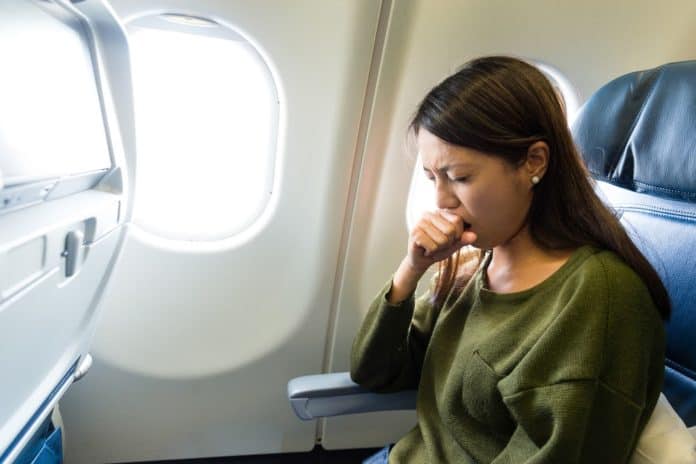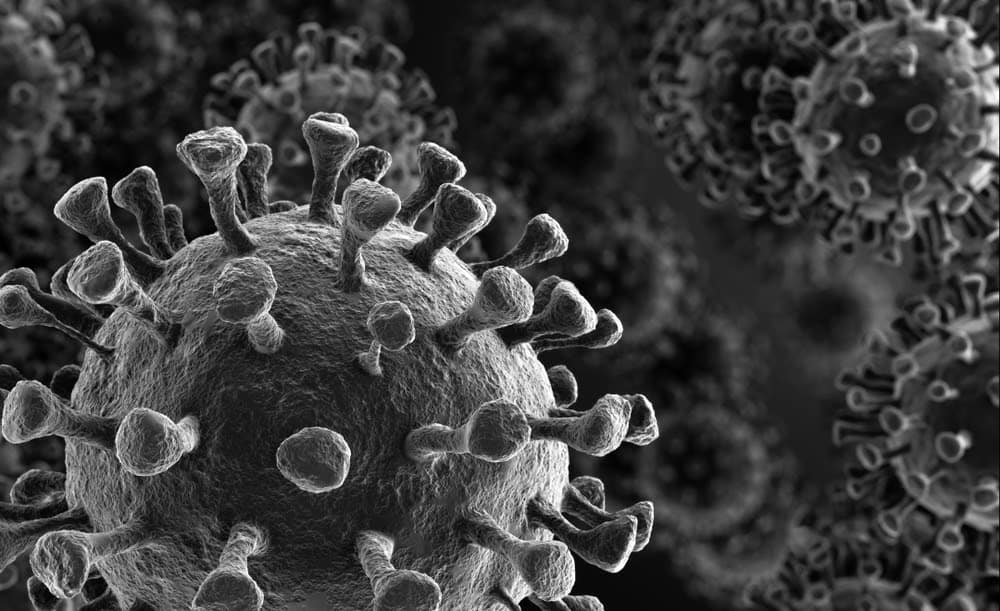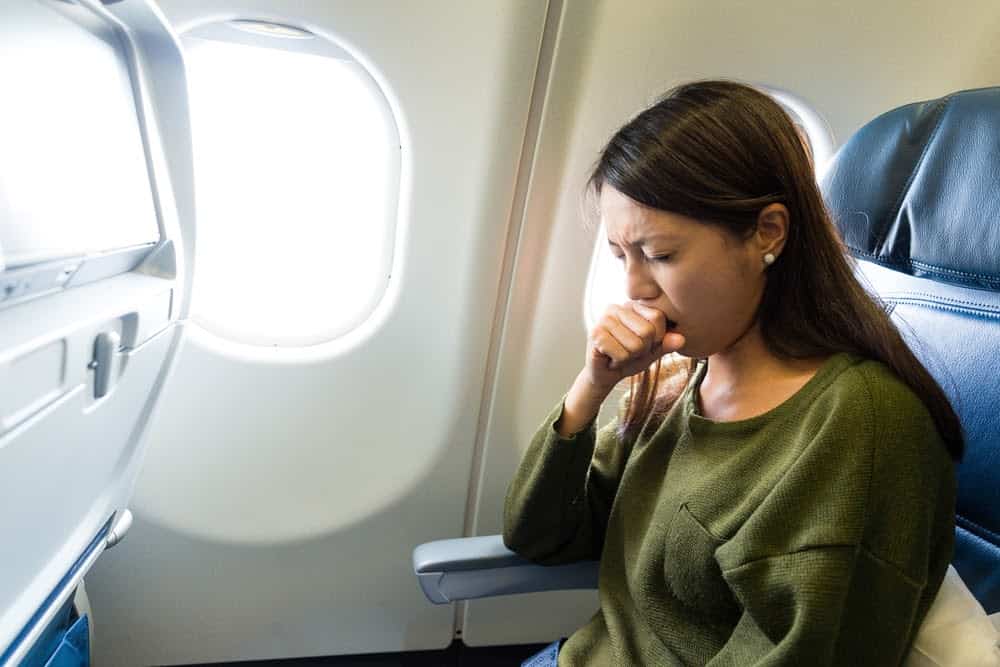

28. It Jumped From Animals To Humans
The current outbreak of coronavirus began as a virus that infected either snakes or bats before it jumped to humans. Other deadly epidemics in the past few decades can also be traced to animal diseases that jumped to humans. Examples include the bird flu, swine flu, SARS (severe acute respiratory syndrome), and MERS (Middle East Respiratory Syndrome).
In fact, most of those outbreaks were types of coronavirus. SARS and MERS, in particular, are caused by strands of coronavirus that jumped from animals to humans. Authorities suspect that the outbreak of coronavirus in the Wuhan Province of China may originate in the selling of unsafe meat, such as bushmeat, snakes, and bats among unregulated vendors.

27. Symptoms Can Be Mild To Severe
Symptoms of any coronavirus infection can be as mild as a light cold or as severe as the life-threatening cases in the news. Some people who contract the 2019-nCoV experience only mild symptoms. These may include sore throat, coughing, and slight fever. However, people with the mildest symptoms are still contagious and can pass the virus on.
The coronavirus was first identified because dozens of people in Wuhan Province had pneumonia with no apparent cause. They had severe symptoms, as pneumonia is a life-threatening illness. Other symptoms include shortness of breath, coughing, and a runny nose.

26. In Some Cases, It Can Be Fatal
So far, there have been over a thousand deaths from the current outbreak of coronavirus, and most of those deaths are concentrated in China’s Wuhan Province. People who develop the more severe symptoms of coronavirus, including pneumonia and shortness of breath, are at the highest risk of dying from it.
Those who have weakened immune systems, and particularly children and the elderly, are at the highest risk of developing severe, life-threatening symptoms if they develop a coronavirus infection. Those who are healthier and have robust immune systems have a better chance of warding off the worst symptoms and recovering.

25. Current Outbreak Concentrated In China’s Wuhan Province
The outbreak began in Wuhan Province, and the vast majority of cases are still located there. Chinese authorities quarantined much of the area to try to keep the virus from spreading and causing a worldwide pandemic. As a result, the people of Wuhan have been on virtual lockdown, and city streets have been empty.
The virus has spread outside of Wuhan and infected other parts of China. It has been found in every province of China, and health and government authorities are working hard to keep it from spreading further. The World Health Organization is also trying to identify precisely how the virus spreads so that it can implement stronger protocols to prevent a global pandemic.

24. It Has Spread Across The World
By the time the coronavirus outbreak had been identified, it had begun to spread to other parts of the world. Australia, Great Britain, the United States, Russia, India, and Spain are some of the countries that reported cases of coronavirus. One reason for the spread of coronavirus was that foreign nationals were living in Wuhan when the outbreak began. When they returned to their home countries following the start of the outbreak, some brought the virus with them.
Some who returned to their home countries did not have any symptoms of the coronavirus but were still carriers, meaning that they had the virus and could pass it on. Those who had symptoms and had been in Wuhan were immediately quarantined to prevent it from spreading.

23. Air Travel Speeds The Spread Of Diseases
In today’s globalized world, diseases spread much faster than they did in the past. United States citizens who also hold a British passport can work in China. People take vacations further from home than they used to, as taking a plane is much faster and safer than a long ocean voyage. When they pick up a disease in one part of the world, they can bring it home.
So new disease outbreaks, such as bird flu, swine flu, SARS, MERS, and the new coronavirus, can spread much more quickly than they would have in the past. Whereas even just a century ago, these outbreaks might have remained confined to small locales and provinces; today they can spread all across the world before health officials even know what they are.

22. Travelers Are Worried
You can walk through an airport today and see hundreds of people carrying their suitcases while wearing surgical masks. People who are traveling are not only going to places where they may pick up a rare and previously unknown disease. They are also in tight quarters with hundreds, sometimes thousands, of people and at a higher risk of picking up an illness.
Airplanes, in particular, are breeding grounds for illnesses. The air in the cabin is recirculated continuously, so water droplets from one person’s sneeze can circulate to every person on board. If one person gets sick, the plane can’t necessarily land quickly; it may be flying over a significant body of water. Travelers have to take extra precautions to avoid getting sick, especially during an outbreak.

21. Symptoms Of Coronavirus Infection Are Mainly Respiratory
Coronavirus is not an illness that will make you sick all over, at least not at first. The primary symptoms are respiratory, not cardiovascular, or connected to any other system. So if you catch a stomach virus while on an airplane, you can write off the possibility that you are experiencing symptoms of coronavirus.
Pay attention to any kind of respiratory distress, including persistent coughing, sneezing, runny nose, and sore throat. If you notice a fellow passenger on an airplane who is experiencing these symptoms, notify a member of the flight crew immediately. If you are experiencing any of these symptoms, DO NOT get on an airplane. Talk to the airline to let someone know what is going on and they may rebook you on a later flight.

20. Protect Yourself
While plenty of people are worried and anxious about the coronavirus, the good news is that there are plenty of things you can do to protect yourself from getting an infection. Most of the measures you can take are nothing more than basic hygiene.
But especially when you are traveling on a plane, basic hygiene takes on heightened importance, as you will be in a closed space with hundreds of other people for several hours. Keeping yourself healthy should always be a priority when traveling, especially when there is a global outbreak of a deadly virus.

19. Wash Your Hands Regularly
The single best thing that you can do to prevent catching the coronavirus is to wash your hands regularly. In fact, washing your hands frequently is the best way to avoid any illness, from the common cold to a stomach virus to the flu. Wash your hands before you eat or drink anything after you use the bathroom, anytime you notice that they are dirty, and pretty much whenever you feel like washing them.
When washing your hands, do more than just rinse them with water. That only gets germs wet. Wet them with warm water and lather up with soap, all the way to your wrists, for 20 seconds. Rinse them well. If you want to be extra careful, learn how surgeons and other healthcare professionals wash their hands and clean them that way.

18. Alcohol-Based Sanitizer Can Kill The Virus
Keeping a bottle of hand sanitizer can also help prevent the coronavirus. While constantly rubbing your hands with hand sanitizer may seem a bit like overkill, if you are traveling during the coronavirus outbreak, you’re not overdoing anything by using hand sanitizer.
Nevertheless, remember that using hand sanitizer is not a substitute for proper and thorough hand-washing. For best results, use hand sanitizer after washing your hands. Doing so will help eliminate any germs remaining on them after a washing.

17. If You’re Flying, Take Extra Precautions
If you’re not traveling anywhere, your risk of catching the deadly coronavirus is extremely low. The most considerable risk is present if you are traveling, even if you are not traveling to an area where there is a current outbreak, because going in itself makes catching a disease much more accessible.
So while you may not regularly wash your hands always and carry hand sanitizer, you may want to take those extra precautions while you are spending time in the airport and on a plane. Also, pay attention to the people around you; notice if they are experiencing any respiratory symptoms. If they are, they may just have a common cold, but they may also have something far worse. Report any illness to the nearest staff member immediately.

16. Consider Wearing A Surgical Mask
Walking around with a surgical mask may undoubtedly seem like overkill, but if you’re traveling, you may want to. A surgical mask will filter out pathogens, such as the coronavirus so that you won’t breathe it in. You don’t need to wear one everywhere you go, but consider wearing one at the airport and while on an airplane.
Individuals worried about this virus can get a surgical mask at any medical supply store and many supermarkets, such as Wal-Mart and Target. You can get a box of disposable masks or cloth masks, which you can wash and then reuse. Whichever kind you decide on, make sure it filters out pathogens.

15. Your Chances Of Catching Coronavirus Remain Slim
At the end of the day, unless you live in Wuhan Province, your chances of catching the coronavirus are incredibly slim. Even if you are traveling on an airplane, as long as you take necessary precautions, you run a little chance of getting ill.
Keep in mind that the media thrives on hysteria. So while there may be news reports every half-hour about the coronavirus, they are most likely hyped up and designed to induce panic. Media outlets are looking for ratings, and nothing gets them good ratings quite like the threat of a global pandemic that could wipe out the entire human race. But you are probably not going to get sick.

14. Don’t Share Drinks Or Food
One of the most basic hygiene measures you can take is not to share drinks or food. Doing so is a surefire way to pick up whatever illness the other person has or pathogens that he or she may be carrying. Even if the person is in your family, you don’t know what germs are living in his or her mouth.
If you are traveling, bring your bottle to fill up at a water-filling station. Let other people either bring their own containers or buy water at the airport. Eat your own food and let other people eat their own food. Don’t pass on germs by sharing food or drinks.

13. Avoid Close Contact With Anyone Who’s Sick
If you are on an airplane, you don’t get much of a choice as to whom you sit next to. Even when traveling in a group, the airline will allocate seats so that sometimes, you won’t even sit next to the people in your group. While you can’t choose whom you sit by, you can choose not to sit by someone who is sick.
Before the plane door closes, see if the people who are seated next to you are experiencing any respiratory symptoms. Incessant coughing, sneezing, watery or red eyes, and shortness of breath are things that you should immediately report to a flight attendant. While that person may just have a common cold, he or she may also have an undiagnosed case of coronavirus.

12. Eat Healthy To Keep Your Immune System Strong
People who catch the coronavirus and develop the most severe, life-threatening symptoms are mainly those who have compromised immune systems. If your immune system is in tip-top shape, then even if you should contact the coronavirus (which is extremely unlikely), you will be much better prepared to fight off an illness.
Avoid excessive amounts of alcohol and sugar. Make sure that you eat plenty of plant-based foods, especially fruits and vegetables, to give your body the nutrients that it needs to stay healthy. Limit your intake of red meat and dairy, both of which can cause inflammation and harm your immune system.

11. Consider Taking Supplements
Supplements are never a replacement for a healthy diet and should only be taken to help fill in the gaps that healthy foods leave. When you are traveling, consider taking extra Vitamin C and zinc, both of which help strengthen your immune system. Some supplements are designed specifically for people who are going.
Also, consider taking garlic, ginger, and turmeric supplements. Garlic can kill an infection before any symptoms develop, and ginger and turmeric have potent anti-inflammatory compounds. They can help you ward off any potential disease, whether it be coronavirus or anything else you could pick up while traveling.

10. You Don’t Need To Cancel Travel Plans
As long as you plan well and travel smart, there’s no need to cancel your travel plans. Yes, you have a much higher chance of getting sick and possibly catching coronavirus if you are confined with hundreds of other people on an airplane. But your chances of getting sick are still very, very slim.
Make sure that you travel smart. Bring hand sanitizer with you and wash your hands regularly. Avoid foods that will compromise your immune system and take supplements. If you’re anxious, wear a surgical mask. But no, you do not need to cancel your travel plans.

9. Only Cancel Your Trip If You Really Want To
However, if the thought of traveling during the coronavirus outbreak is making you exceptionally nervous or anxious, then there is no need to put yourself through the misery of panic. If you do want to cancel or change your travel plans until the threat of coronavirus is over, then contact your airline to see if a change is possible.
Also, contact the place where you had arranged to stay while traveling. Hotels often have flexible cancellation policies, especially if you are merely changing dates instead of canceling altogether. If any company that you have booked with refuses to make a change, then contact your credit card company. Explain the situation and see if the credit card company will arrange for you to get a refund.

8. If You Go To Asia, You Can Still Protect Yourself From Coronavirus
Though the coronavirus has spread so that there are isolated cases in many countries, it is still primarily confined to China. If you are traveling to China or anywhere else in Asia, you do have a higher chance of contracting the coronavirus. That is unless you take precautions to protect yourself.
If you are traveling to Asia, you’ll want to wear a surgical mask for more than the duration of the plane flight. You may want to wear it for the length of your stay. In your hotel room, sanitize all surfaces, including the floor. Better safe than sorry.

7. You Cannot Travel To Wuhan Province
If you had made travel plans to Wuhan Province, you must forget them. The Chinese authorities have entirely shut down Wuhan Province so that nobody can get in or out. They have taken these drastic measures to prevent the virus from spreading.
If you made travel plans to Wuhan Province, talk to your airline to change the travel date and get a refund. You may also consider traveling somewhere else instead, such as another place within China. Nevertheless, unless you are an official from the World Health Organization, there is no way in or out of Wuhan.

6. Encourage Others To Take Precautions
If you’re traveling with a group of people, they will probably already have some concern about coronavirus. Talk with them about the precautions that they need to take to prevent it. Remember that if one person in your group gets sick, there is a much higher risk of everyone getting sick.
Consider sending out an email before your travel date to express your concerns about the coronavirus and encourage everyone to take precautions. Make sure they understand that under no circumstances should anyone share food, and that regular hand-washing is a must.

5. Report Symptoms Right Away
Coronavirus symptoms are respiratory. If you’re traveling and experience any respiratory symptoms such as a sore throat, persistent cough, sneezing, and shortness of breath, seek medical help right away. If you’re already in an airport when you begin to experience symptoms, speak to a staff member to find out where you can get medical attention. Medical professionals will be available to take your symptoms and run a test to see if you have coronavirus.
If you are experiencing non-respiratory symptoms, then don’t worry about coronavirus. Even if you start throwing up, you are probably not sick with coronavirus. That said, if you are throwing up, you definitely should not get on an airplane. If anyone in your traveling group is experiencing respiratory symptoms, do more than suggest that they seek medical attention. Walk with them to a help point and remain with them until they are under the supervision of a medical professional.

4. If You Travel To Asia, Avoid Contact With Live Animals
Again, if you are traveling to Asia, you run the most significant threat of contracting the coronavirus. Still, that threat is small and can be drastically reduced by taking routine precautions. One precaution you should absolutely take is avoiding contact with live animals.
Why? Because the current coronavirus outbreak originated in animals before jumping to humans. While World Health Organization officials are looking into how the virus spreads among humans, we’re still in the dark about how it spreads among animals. So just stay away. Far away.

3. Don’t Eat Uncooked Or Undercooked Animal Products
This one should be a given, but if you are an intrepid traveler who likes to get off the beaten path, you may want to visit food stalls that are operated by individual vendors. These food stalls may be selling meat and other animal products that have not been inspected and are therefore not regulated. Their animal products may contain coronavirus.
Furthermore, the more intrepid travelers may be tempted to eat the more daring local fares, which may include raw or undercooked meat or raw dairy products. While doing so is risky on a good day, during the coronavirus outbreak it’s just outright stupid. Do not eat any animal products that are not fully cooked.

2. Be Aware Of Cross-Contamination
On the note of avoiding any raw and undercooked animal products, be aware that fruits and vegetables have very likely come into some contact with animals. If you are traveling, you do not know the local food sources and how produce is handled. So the best rule of thumb is only to eat things that are cooked.
This means that you should pass on the salad in favor of soup. Don’t get raw greens on your sandwich, no matter how healthy they are supposed to be. Steamed, sautéed, roasted, or grilled vegetables are a better choice than raw vegetables. Don’t worry about missing out on the cultural experience. You’re protecting yourself from falling prey to a deadly outbreak.

1. You Probably Will Not Get Coronavirus
Again, the coronavirus is still extremely rare, and you will probably not get it. The media thrives on hype and hysteria and will present the most sensationalized stories in the most sensationalized manner in order to get the best ratings. In other words, if they can terrify you into thinking that you will get coronavirus, you are more than likely going to stay glued to that channel and take in every single thing that they say.
However, if you are equipped with the facts about the outbreak and how you can protect yourself, then you will not fall prey to anxiety-provoking news stories. Make sure that you wash your hands regularly and also use hand sanitizer, especially when traveling. Keep your immune system robust eating healthy. Be aware of respiratory symptoms, both in yourself and in others with whom you are visiting.
Furthermore, most of all, enjoy your trip. Don’t let fear of coronavirus interrupt your travel.
Sources:
“Coronavirus.” WebMD.
“How to protect yourself from coronavirus infection,” by Justin McCurry. The Guardian. January 30, 2020.
“2019-20 Wuhan coronavirus outbreak.” Wikipedia.
“How To Stay Safe From The Coronavirus While Traveling,” by Jen Batler. Rough Maps.